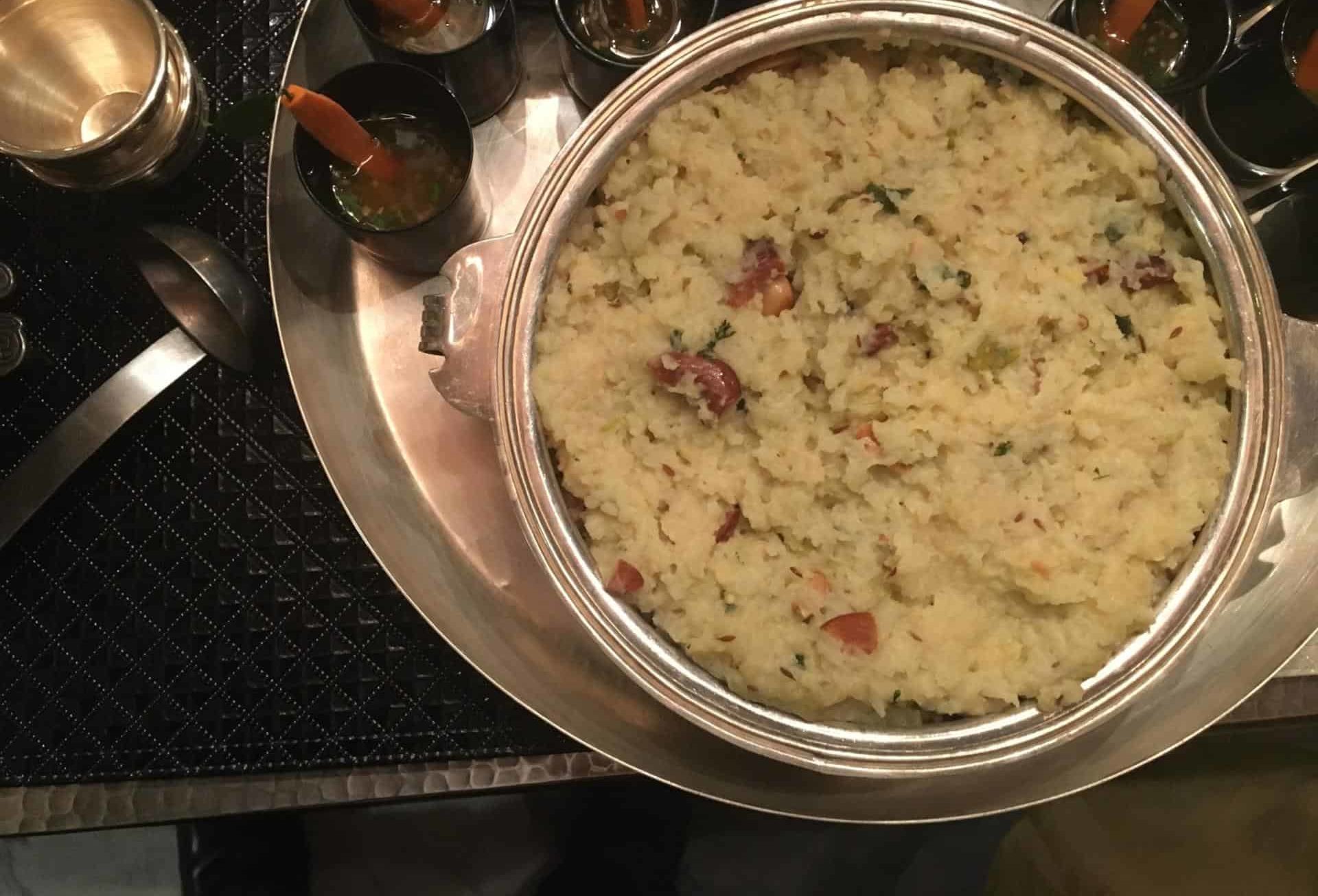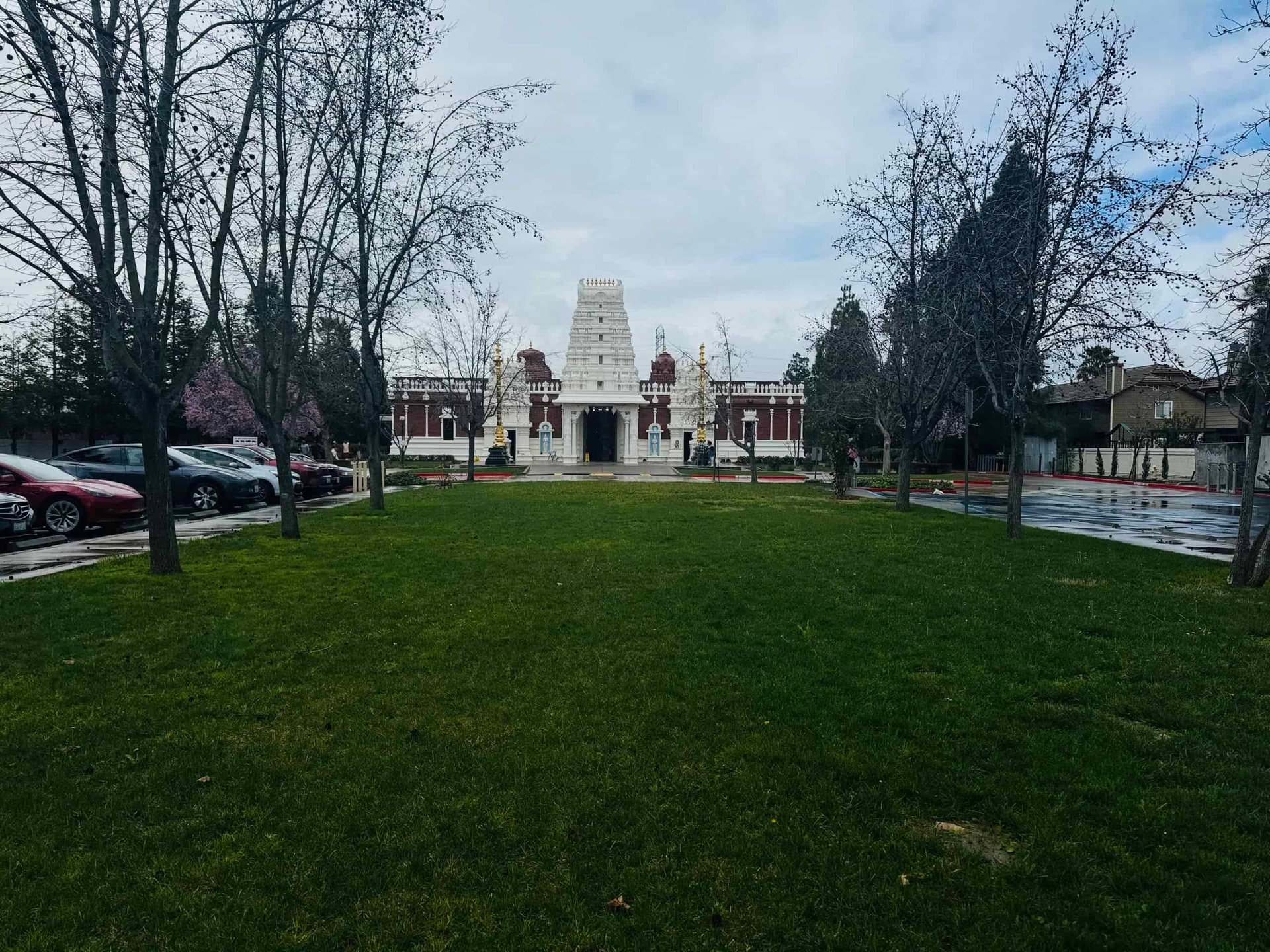Thrilled that my first piece for The Guardian UK came out on this harvest festival day when all of India is in bloom.
Pongal is both a harvest festival, which starts today, and the rice and dal breakfast dish eaten to mark its arrival

I stand in my kitchen, in the liminal light between dreams and dawn, trying to contain my delight. Normally, I am a late and grouchy riser but today is Pongal – the harvest festival celebrated across southern India, particularly Tamil Nadu, in mid-January – which gives me the opportunity to eat its namesake food, one that I love.
There are two kinds of pongal: a sweet one made with jaggery(palm sugar) and this savoury ven (white) pongal, a simple dish made with rice and split mung dal. It is a study in restraint, unusual for India and almost Japanese in its minimal use of spices. Heartier than porridge, it is a vegetarian’s chicken soup, the epitome of comfort food. When served along with idlis (steamed rice dumplings) and dosas (thin, crispy pancakes), it forms a perfect south Indian breakfast.
It is also served at wedding breakfasts.
While I lived in New York years ago, my Sunday routine after a night on the tiles was to walk to Pongal restaurant on Lexington Avenue and order copious amounts of it. When I holed up in London for a month to write a piece, I told chef Sriram Aylur of Quilon restaurant that while his Michelin-starred tasting menu was exquisite, what I truly craved was my grandmother’s pongal. “You and me both,” he laughed.
So here I stand in my kitchen, pouring the rice and mung dal into the pressure cooker. I want to have the dish ready before sunrise, so we can worship the sun as we usually do on this day.

This year, Pongal falls on 14-18 January. It is a time when we decorate our homes with symbols of the harvest. I have tied two tall sugarcane stalks on either side of my front door. There they stand, like exuberant if emaciated knights, guarding the threshold. Young turmeric, plentiful in the market at this time of year, is laid out on banana leaves, which we will feed to the cows tomorrow. My earthenware “pongal pot,” decorated with white designs, has mango leaves tied around the rim. Garlands of fragrant jasmine and marigolds are strung on every doorway. There is green everywhere I look.
I walk to the terrace and draw a design on the floor with rice flour. Orange light fills the sky. It is time. My husband and two daughters troop in. Together we carry trays of fruits, vegetables and flowers out to the terrace. The pongal pot takes pride of place in the centre.
The sun rises. We touch our palms together in a namaste and pray to Surya, the sun god. As we stand quietly, savouring the new light, the fragrance of the pongal rises up and tickles our nostrils.
“Pongal-o Pongal,” calls my husband.
“Pongal-o Pongal,” we echo his wish. May the harvest be bountiful.
Then, we go in, to sample this perfect dish on what will surely be a perfect day.
Savoury pongal
Serves 2
100g rice, ideally not basmati because you want the grains to stick together, so any medium- to short-grain rice
60g mung dal
½ tsp cumin seeds, lightly crushed
⅛ tsp asafoetida
3cm piece fresh ginger, chopped
700-750ml water, or add as required
12 cashew nuts, halved or quartered
10 black peppercorns
A few curry leaves
1 tbsp ghee or clarified butter
½ to 1 tsp salt (as required)
Roast the mung dal on a low heat until aromatic. Pour into a bowl, add the rice and water and pour the whole thing into the pressure cooker, adding the ginger, asafoetida and salt. Pressure cook on a medium to high heat for 10 to 12 minutes until the texture of thick porridge. (If you do not have a pressure cooker, you can make the pongal in a pot or pan on the stove-top. Simply follow the recipe and cook the rice, lentils in 800-950ml cups water for 30-40 minutes. Do add more water if needed.)
Heat the ghee in a separate pan, add cumin seeds and fry until they sputter, then add the cashews. Stir over a low heat until golden. Add a few curry leaves and black peppercorns, then pour this over the pongal. Mix well and serve hot with coconut chutney or sambar.
• Shoba Narayan’s latest book is Food & Faith – A Pilgrim’s Journey Through India




Leave A Comment